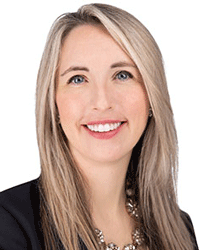Darcy Kim is a Master’s in Public Administration student in the Schar School’s Northern Virginia Public Service Fellows Program.

Darcy Kim
What does it mean to be a public servant during a global pandemic? It isn’t easy, but it’s important.
I’m a Behavioral Health Supervisor in the Behavioral Health Outpatient Program at the Fairfax County Community Services Board (CSB), responsible for a team of seven clinicians. I am also a graduate school student, a mother, a wife, a daughter, and a friend.
Through the work of my group, the county provides care for 230 people that are receiving treatment for issues related to severe mental illness or substance abuse disorders. We are very much the community’s safety net: If we don’t perform effectively, the community and other public services see large impacts. At a time when resources for local government are stretched, we must continue to support the individuals we serve, as well as our local government partners—such as first responders.
The CSB provides sliding scale care, which allows our treatments to be affordable to those who face hardships in paying. Case management and individual therapy are services we can provide through Zoom or phone appointments during this period of self-quarantine.
But there are some services the CSB cannot provide remotely, such as medication clinic services, including lab work and antipsychotic medication injections. Some clients on specific medications require weekly blood draws and need to be seen in person. We also prescribe and dispense medications like Suboxone, for opioid addiction treatment, which require medical provider monitoring. To complicate things, those in a psychiatric crisis or those with paranoia/delusions around the use of electronics—yes, it happens—have difficulty with use of technology and online tools. Many individuals we serve don’t have mobile phones, computers, or other types of electronics, and have no other way to access our services other than in person.
My team is incredibly dedicated to supporting the individuals they serve. As COVID-19 increasingly affects our community, clinicians are most concerned about mitigating the possible damage to our most vulnerable clients. They’re not only concerned about our clients, but also about the transmission to clients’ immediate family members, some of whom may have underlying health issues.
The leadership of an organization must pay close attention to the message their actions send. In my experience, a critical element in managing a team’s concerns is actively listening to their concerns and providing clear, consistent, and concise communication. This is especially important during chaotic times such as this global pandemic.
My definition of “community” is inclusive of those we serve, as well as those providing service—our staff. Looking after care providers’ emotional and physical health is critical to providing better service delivery, and this is something I strongly advocate for every day in my job. Ensuring caregivers’ health can easily be overlooked when pursuing the goals of productivity, yet I find it’s really not hard to find a balance once you’ve realized the importance of including providers in the definition of “community.” This balance is critical in managing everyone’s safety and really one of the only ways to ensure providers can continue to provide the essential services we deliver in a crisis.
To be a public servant means being dedicated to the communities we serve by making the best decisions possible to ensure people receive the care they need—especially at a time when individuals may need our support the most.
My job in the Community Services Board requires communication, expertise, advocacy, partnership, patience, experience, calm, self-care, and—for me—chocolate.
